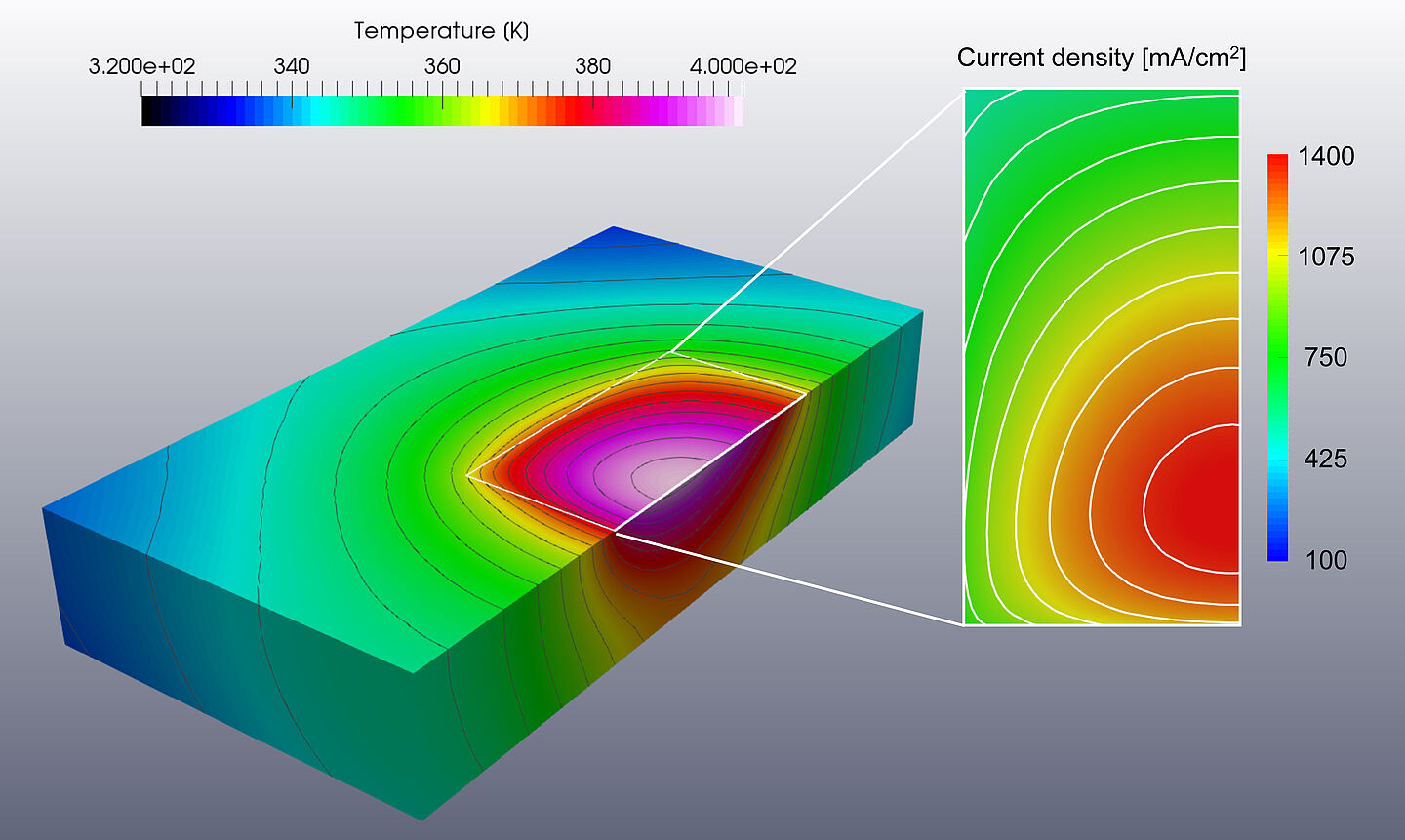In the Excellence Strategy research competition run by the German federal and state governments, seven Clusters of Excellence of Freie Universität Berlin, Humboldt-Universität zu Berlin, Technische Universität Berlin, and Charité – Universitätsmedizin Berlin have been adopted in total. Starting in 2019, the interdisciplinary research projects will each be funded for seven years with up to ten million euros per annum, as declared in Bonn on September, 27. After the first seven years, with a renewal proposal, it may be possible to extend the funding a further seven years.
The Forschungsverbund Berlin (FVB) celebrates: All Cluster of Excellence proposals in which FVB institutes are involved have been successful. These include:
- MATH+
How Berlin mathematics is shaping the future
MATH+, the Berlin Mathematics Research Center, is a cross-institutional and transdisciplinary Cluster of Excellence where researchers will explore and further develop new approaches in application-oriented mathematics. Emphasis is placed on mathematical principles for using even larger amounts of data in life and material sciences, in energy and network research, and in the humanities and social sciences. The aim is to boost not only scientific progress, but also technological innovation and the comprehensive understanding of social processes. MATH+ continues the success stories of the renowned MATHEON Research Center and of the Berlin Mathematical School, which has been supported by the Excellence Initiative since 2006.
Applicant universities: Freie Universität Berlin, Humboldt-Universität zu Berlin, Technische Universität Berlin
FVB involvement: Weierstrass Institute for Applied Analysis and Stochastics (WIAS) - Prof. Dr. Michael Hintermüller, WIAS director, is one of the three spokespersons
- NeuroCure
Comprehensive approaches to neurological and psychiatric disorders
The neuroscience Cluster of Excellence NeuroCure at Charité - Universitätsmedizin Berlin has been funded since 2007 within the framework of the Excellence Initiative of the German federal and state governments and can now continue its successful work. Research into neurological and psychiatric disease mechanisms and the transfer of basic scientific findings to clinical application – in short, translation – are at the heart of this interdisciplinary and international consortium. In the future, NeuroCure will focus on projects covering the entire life span – from embryonic development to aging – and establish new innovative modules that accelerate the translational process.
Applicant universities: Freie Universität Berlin, Humboldt-Universität zu Berlin
FVB involvement: Leibniz-Forschungsinstitut für Molekulare Pharmakologie (FMP)
- Science of Intelligence (SCIoI)
Learning to understand intelligence
Science of Intelligence is focusing on better understanding intelligence in all its facets: which fundamental laws and principles underlie different forms of intelligence – whether it be artificial, individual, or collective intelligence? The scientists from the most diverse disciplines – from psychology, robotics, and computer science to philosophy and behavioral research – want to use their research results to create new intelligent technologies. The cluster’s methodological strategy is a new approach in intelligence research in which all knowledge, methods, concepts, and theories must be incorporated into technological artifacts, such as robots or computer programs. These artifacts serve as a common “language” that is intended to facilitate scientific exchange across disciplinary boundaries.
Applicant universities: Humboldt-Universität zu Berlin, Technische Universität Berlin
FVB involvement: Leibniz-Institute of Freshwater Ecology and Inland Fisheries (IGB)
- Unifying Systems in Catalysis (UniSysCat)
How to understand and utilize networks in catalysis
More than 85 percent of all products come into contact with a catalyst during production. Catalysis research is therefore not only regarded as one of the most important research areas in chemistry, it is also the main driver of “green chemistry,” which focuses on sustainability and resource conservation. The UniSysCat Cluster of Excellence will play a key role in Germany and can build on ten years of outstanding work by UniCat, the previous cluster of the Excellence Initiative. Individual catalytic reactions are already well understood in many cases. The challenge now is to decipher reaction networks in chemical and biological catalysis in space and time so that they can then be controlled, predicted and modified. Which key parameters enable and control chemocatalytic and biocatalytic networks? How can chemical and/or biological processes be coupled to create catalytic systems with new functions? These are the central research questions of UniSysCat.
Applicant university: Technische Universität Berlin
FVB involvement: Leibniz-Forschungsinstitut für Molekulare Pharmakologie (FMP)
Prof. Dr. Jens Krause from the Leibniz-Institute of Freshwater Ecology and Inland Fisheries (IGB) is also an external partner in the successful cluster project "Collective Behaviour" at the University of Konstanz.


